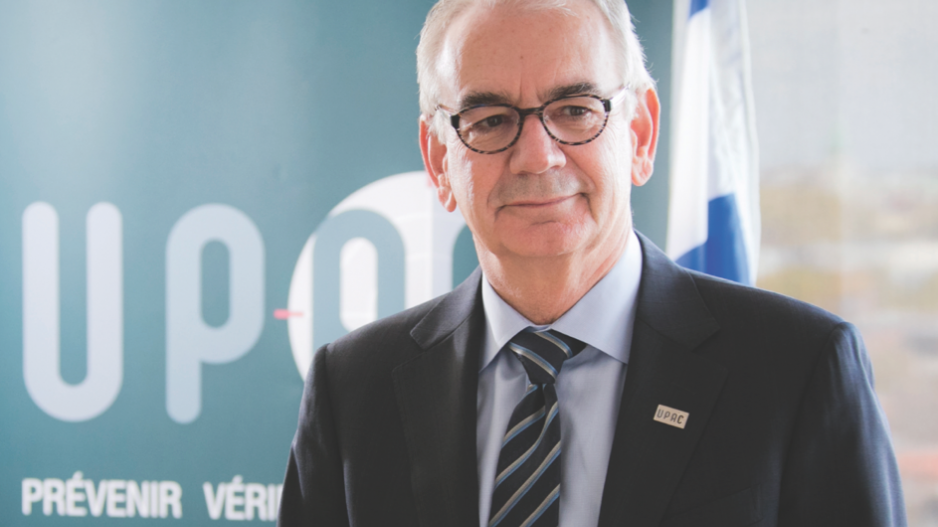Less than a week before the federal Liberal government announced a plan to spend $81 billion on infrastructure over the next decade, speakers at a Vancouver anti-corruption conference warned that Canada is not doing enough to protect the public from bribery and fraud.
The conference Follow the Money: Corruption, Money Laundering and Organized Crime featured a keynote speech by Osgoode Hall Law School professor Margaret Beare.
“Across Canada, this is going to be a very big year for infrastructure. Ontario, B.C., every province: huge, huge amounts of money are going into infrastructure,” said Beare, author of Criminal Conspiracies: Organized Crime in Canada.
Yet, she said, Canada has relatively few corruption prosecutions. That is not because government and industry are spotless, but rather because of the costly nature of investigations and the lack of political will.
Beare said it starts with the public demanding better.
“Everybody has to be in on the effort to change the culture. Most people don’t care. [They say] ‘It’s corruption, it doesn’t affect me.’ In 2008 [the Great Recession], people everywhere got seriously hurt. What happens internationally, the fallout from corruption is absolutely devastating, and maybe that is how Canada can start to take it more seriously.”
The World Economic Forum estimates the cost of corruption equals 5% of the global economy – about $2.6 trillion. The World Bank estimates more than $1 trillion is paid in bribes a year.
Beare said Vancouver’s hot housing market could be the perfect storm of corruption, because it includes elements of shadow flipping, construction fraud, political expediency, trumped-up accusations of racism, foreign money laundering, immigration scams and lost taxation revenue.
Peter German, the former RCMP deputy commissioner for Western Canada, said many in the rest of Canada are “very quick” to criticize Quebec for its culture of corruption that has been aired in successive royal commissions throughout the years. The latest headline came November 1 when a Montreal jury found ex-Liberal strategist Jacques Corriveau guilty of fraud for his part in the 1990s sponsorship kickback scheme. Prosecutors alleged he pocketed $6.5 million.
“For whatever may be going on in La Belle Province, in terms of old-style mafia and street gangs, they’re doing something. Are we, the other nine provinces, doing our share?” German asked.
The conference included a keynote speech by Robert Lafrenière, the commissioner of Quebec’s 2011-established anti-corruption police, Unité permanente anticorruption (UPAC). Lafrenière said construction prices in the province have fallen 30% since authorities cracked down.
He boasts a staff of 300 and an annual $30 million budget in a province where numerous bureaucrats and politicians have been found to be corrupt, and where SNC-Lavalin, one of Canada’s biggest companies, is headquartered.
SNC-Lavalin, the engineering and construction giant, is the subject of criminal and civil actions in Canada and abroad. The company was blacklisted from World Bank projects for 10 years in 2013 for bribery in Southeast Asia. It is building TransLink’s $1.43 billion Evergreen Line and BC Hydro’s $1.1 billion John Hart Generating Station and bidding on the $3.5 billion bridge to replace the Massey tunnel.
UPAC has arrested 155 people since 2011, including 23 last year. In 2015, it executed 340 search warrants and reported 50 active investigations. It also audited and verified 742 companies before they were deemed eligible to bid for public contracts. UPAC detectives made more than 100 visits to construction sites as part of its prevention activities.
Lafrenière said the plague of corruption needs to be brought to the public eye, with problems including “misuse of public resources, worsening of the public deficit, reduction in public revenues through tax evasion, [and] deterioration in the provision of public services and assets.”
The scope of the problem, he said, is not known without active investigations.
“It’s very important: if you don’t make any strategy of intelligence and investigation, you will think that your place is clean and everything is fine. You can be sure of that,” he said. “If I have a message that I want to [stress] today, it’s that one.”
The B.C. government is spending nearly $9 billion on the Site C dam, but withholding the updated cost estimates for two transit megaprojects proposed for Metro Vancouver.
The City of Surrey revealed in March that its light-rail project had increased from $2.14 billion to $2.6 billion. The Broadway subway is to be a $1.98 billion project, according to 2014 estimates.
The anti-corruption conference was hosted October 28 by the University of British Columbia International Centre for Criminal Law Reform and Criminal Justice Policy. •




